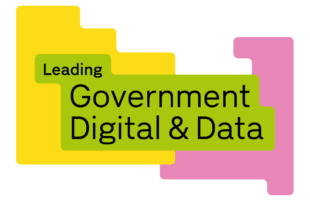
One year ago, the Government Digital and Data Profession Capability Framework returned to public beta with a new design, structure and functionality to better meet the needs of its users. Since then, we have taken a continuous improvement at pace approach to ensure the framework gives users a clear and accurate understanding of digital and data roles and skills in government. This is critical to support colleagues exploring and assessing their career development, departments needing to recruit, and members of the public wanting to apply for roles in government.
Making changes to the framework
The Capability Framework publishes changes every 3 months. These changes are made to:
- meet user needs, evidenced by insights and research
- adapt to changing organisational needs
- adapt to developments in technologies and industry
The latest update was in August where we made changes affecting the content of 17 roles and 20 skills, including:
- 2 new roles, analytics engineer and machine learning engineer
- 1 role, user researcher, with fully refreshed skills
- improving the content of 14 skills
These changes have been extensively reviewed and, where applicable and possible, tested with users and subject matter experts.
In total, since October 2023, we have made changes affecting the content of 33 roles, including 5 new roles. You can find details of all updates on the Capability Framework homepage.
“This release is a really important step for us. Firstly, it represents the best of collaboration in government. Experts coming together, sharing ideas, and making compromises, to ultimately realise the best solution for all. And secondly, it demonstrates how the Capability Framework is both relevant and a critical reference point for the changing nature of digital in government.
The introduction of the machine learning engineer reflects the practical steps we are taking to understand and recognise critical skills, so that we can attract and build talent to exploit emerging technology in full!”
Thomas Beautyman, Deputy Director Government Digital Capability.
How we make change happen
Over the past year, we have experimented with more efficient ways of developing the framework to ensure that we:
- accurately reflect the roles and skills needed in government
- connect subject matter experts from across government to collaboratively evolve roles and skills
- use appropriate tools and processes that make role and skill development more efficient
- use different methods to validate content and build confidence in the framework
- align to industry
Alongside supporting digital and data subject matter experts who have proposed changes to the framework, we are developing cross-government working communities. These communities help us proactively iterate content, instead of waiting for a problem or challenge to spark the need for change.
Simultaneously, through critical reviews by content designers, we are making content changes to skills and roles to make the framework more accessible, inclusive and user-focussed. This includes changes to:
- improve usability, for example, by using plain English and content patterns
- ensure the framework defines up-to-date technical digital and data skills, rather than general Civil Service skills
Using this blended approach helps us ensure the framework better meets the needs of all users.
An in-person cross-government working group meeting to the Government Digital and Data Profession Capability Framework.
Our tailored approach
As outlined above, we’ve extensively collaborated with experts from across government to create 2 new roles, analytics engineer and machine learning engineer.
Developing the analytics engineer role
The need for an analytics engineer role was identified by the Ministry of Justice (MoJ). They established a distinction between analytics engineers and data engineers, and were already using and recruiting both roles.
They recognised that by developing an analytics engineer role on the framework, it would:
- create consistency between departments, enabling more cross-government flexibility, understanding and collaboration
- enable existing analytics engineers to better plan their development and progression, improving retention
- provide a bridge between data engineers and data users, such as analysts and data scientists
- align to industry, to enable attraction of talent from organisations such as Microsoft, Amazon, Netflix and Miro that have both analytics engineers and data engineers
Following a successful proposal by MoJ at the Capability Framework Design Council (CFDC), we formed a working group of subject matter experts from different departments. The group was supported through the role drafting process by a content designer from the Capability Framework team.
Together, the group determined the skills, skill levels and role levels required, with a focus on ensuring clarity between the analytics engineer role and the data engineer role. Following the Capability Framework style guide, the group made conscious design decisions that ensured the new role definition was accurate, clear and easily understood.
Anis Khan, the interim Deputy Director of Data Science, AI, Data and Analytics Engineering in the Data Directorate at the MoJ, worked with us to develop the role. He said, “analytics engineers perform an important role in the data value chain. Having this role represented within the framework recognises the value of having a joined-up approach between digital, data and analytical functions across government. Promoting this approach is an important step in improving operational effectiveness and providing a better service for all users of data."
Developing the machine learning engineer role
The machine learning engineer role had a different starting point. As an emergent area experiencing a lot of attention, we wanted to explore which, if any, skills or roles related to artificial intelligence (AI) might need to be added to the framework.
We worked with CDDO's Head of AI Skills for Public Sector to understand which AI roles and skills were emerging in government and in the private sector. Following a detailed industry analysis, we interviewed 27 Government Digital and Data professionals working on AI and machine learning services. In total, we worked with 15 departments and organisations. This determined the recommendation to add the role of machine learning engineer to the framework.
“Adding new technical roles like the machine learning engineer to the Capability Framework is crucial for ensuring government departments and organisations can attract and support the talent needed to evaluate, scale, and realise the value of emerging technologies, including AI. Collaboration across multidisciplinary teams, working closely with other key roles in the framework, will be essential in safely and effectively building world-leading public services."
Dan James, Director of AI and Digital Innovation at Ministry of Justice UK
The CFDC approved the proposal to add the role, and a working group of machine learning subject matter experts from 6 departments collaborated to draft the role, role levels and choose appropriate skills. To validate the content with a broader audience, we developed a survey and shared a private beta version of the role more widely with other subject matter experts.
Continuous improvement needs you
Alongside making continuous improvements to the framework’s content, we are keen to ensure we develop and share the framework in ways that work for our users. We are engaging with cross-government subject matter experts and digital and data capability leads to:
- get feedback on the CFDC and improve the governance process
- understand internal processes that depend on the Capability Framework, looking for ways we can help make these processes easier
As we look ahead to the next 3 months, we are keen to keep momentum with a proactive approach to making iterative improvement - no matter how small. As a ‘living product’, we encourage colleagues to propose a change to the framework and provide feedback on using the framework to help us evolve.

8 comments
Comment by David H. Deans, GeoActive Group posted on
This is a positive step towards a more accessible, inclusive, and user-focused Digital and Data Capability Framework.
I'm particularly interested in learning more about the two new roles that have been added. Could you elaborate on the specific skills and experience required for these roles in a follow-on post?
In addition, it would be helpful to understand how the framework is being used in practice across different UK government departments. Share more examples of how the framework will lead to transformation improvements.
Comment by Olivia Helliwell posted on
Thank you for your feedback. I'm really pleased you find our progression a step in the right direction.
Full details of the skills required for the analytics engineer role and machine learning engineer role are on the framework, linked in the blog. We are also encouraging subject matter experts to write about updates they’re involved in when we publish new roles, including the 2 new roles. This will provide more in depth information on why and how roles and skills are developed.
There are some great blog posts, such as 'How the DDaT Profession Framework supports our Business Analysts', that demonstrate how the framework is used in different government departments. We will also be encouraging representatives of the Capability Framework Design Council to write about how their organisation uses the framework. This will help develop a clearer understanding of what the framework looks like in practice.
Thank you again for your feedback. It’s really appreciated.
Comment by Sarah Blundell posted on
As the lead for the NHS version of this we try and ensure alignment as much as possible at least at the role level. It would be great if NHS England could be represented on this group. Or if not represented that we are included in consultations.
Comment by Olivia Helliwell posted on
Thank you for getting in touch. Alignment across government and the NHS is incredibly valuable!
Please email digitaldatacapabilityframework@digital.cabinet-office.gov.uk so we can discuss this with you. We have a representative from NHS England in our Capability Framework Design Council - if appropriate, we can also put you in touch with them.
Comment by Vicky posted on
Interesting stuff! I had heard that the service designer role was going to be refreshed, for example removing 'prototyping in code' as it's more relevant for interaction design. Is there any update as to what is happening with that role.
More generally how we can understand changes as they emerge?
Comment by Olivia Helliwell posted on
We’re glad you find this as interesting as we do!
This is correct. The skills required for three design roles, service designer, interaction designer and graphic designer, are scheduled to be updated by the start of December. This follows collaboration with designers across government over the last year to make sure the skills are relevant to each role.
To understand changes as they emerge, you can:
- contact your organisation’s head of design for more information and see the draft of the skills, if you’re in a government department
- follow the ‘Design in government’ blog, where there will be a post about the update to these roles later this year: designnotes.blog.gov.uk
- find all updates to the framework on the Capability Framework homepage, linked in this blog
Comment by Muskan Choudhary posted on
Any chances that you hire for more analytics engineers in the coming 6 months ? Would love to apply for this role .
Comment by Olivia Helliwell posted on
I’m pleased to hear you’re interested in the analytics engineer role. The role may be required by different departments at different times. I would recommend signing up for job alerts on Civil Service Jobs to be notified when roles in this area become available.